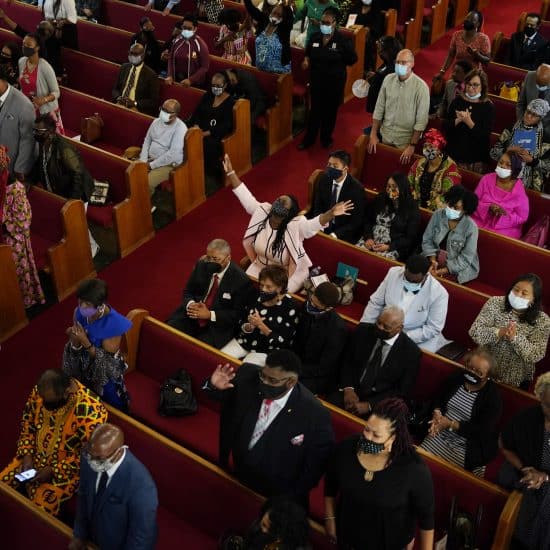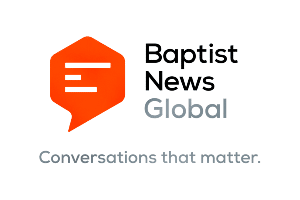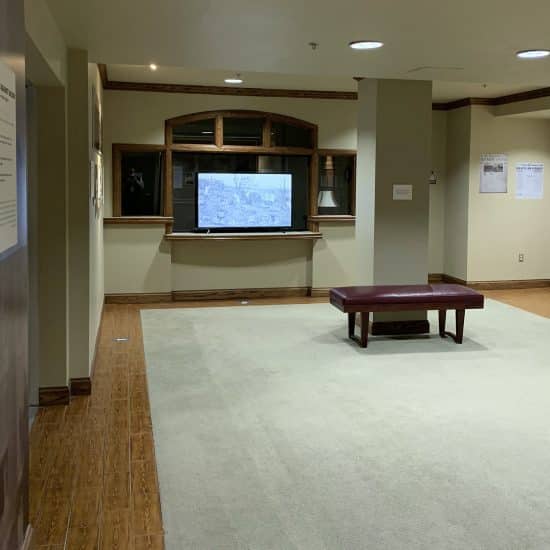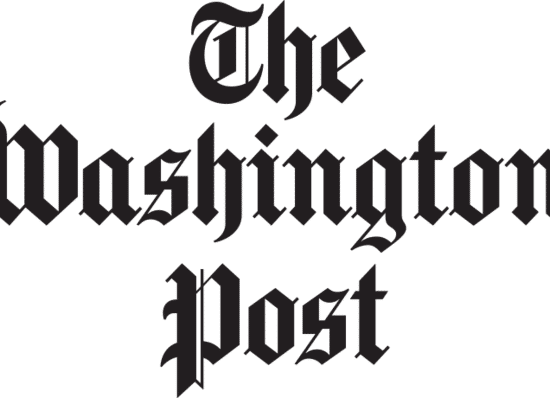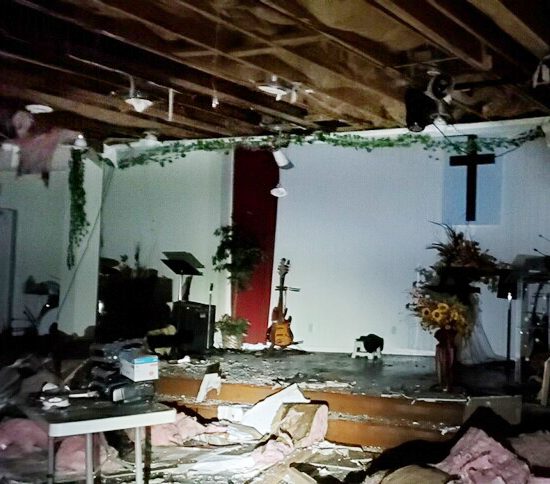

Blacked out Instagram posts on Tuesday, June 2, 2020. Screengrab
(RNS) — On Tuesday (June 2), artists and celebrities planned to black out their social media profiles and “mute” their feeds to amplify black voices, as the country continues to grapple with protests in the wake of George Floyd’s death.
Below are a number of black advocates whose activism is rooted in their faith and who are working to educate and inform others on racial injustices.
Austin Channing Brown
@austinchanning
Brown is a writer and speaker dedicated to the work of racial justice and anti-racism. Her bestselling book “I’m Still Here: Black Dignity in a World Made for Whiteness” is a powerful autobiographical account that calls white Christians to confront their contributions to racial hostility in the U.S. Brown is also co-creator and executive producer of “The Next Question,” a video series that provides in-depth conversations about practicing anti-racism. You can subscribe to her newsletter and follow her on Facebook, Twitter and Instagram.
“I’m gonna say this gently (for now). The photos of police kneeling or being nice or joining the march are nice. That is NOT going to solve the problem. We are not asking for niceness. We are demanding freedom. And freedom requires systemic change, policy change, abolition.” (Twitter)
Margari Aziza Hill
@Margari_Aziza, @MuslimARC
http://www.muslimarc.org/about
Hill is an educator and co-founder of the Muslim Anti-Racism Collaborative, a multiracial human rights education organization that specializes in training Muslims to confront racism. Their areas of focus include internalized racism, intra-Muslim racism and institutional racism.
“Racism in Muslim communities manifests on multiple levels. … Nonblack Muslims can be better allies by learning, and that entails some cultural humility.” (video on Twitter)
Jemar Tisby
@JemarTisby
Tisby is a Christian speaker and author of “The Color of Compromise: The Truth About the American Church’s Complicity in Racism.” The book gives an in-depth historical and sociological analysis of how white Christians have contributed to a racist society, and it offers a way forward for improving race relations in the church. Tisby is also president of The Witness, a black Christian collective that engages racial justice from a Christian perspective, and co-host of the “Pass The Mic” podcast.
“Whenever the massive problem of fighting white supremacy, racism or police violence freezes us in place, we don’t need a grand vision for reform and revolution. All we have to do is think of a ‘1-inch’ action to get us going. … If we keep going, then the 1-inch actions we take to fight racism can paint a beautiful portrait of justice and equity.” (RNS)
Christena Cleveland
@CSCleve
Some of the Instagram posts with the #blackout hashtag on June 2, 2020. Screengrab
Activist and public theologian Cleveland recently launched the Center for Justice and Renewal, a nonprofit that nurtures skillful justice advocacy. Cleveland also offers subscriptions to resources that empower readers to decolonize their spiritual imaginations, and her website provides access to a digital PDF of Christ Our Black Mother Speaks, a collection of essays, art and questions aimed at deepening one’s connection to the Dark Divine Feminine.
“‘I can’t breathe’ is a clarion call. Christ our Black Mother is saying enough is enough! I can’t breathe is the rally cry of mother bears who refuse to acquiesce to the status quo, who refuse to back down from a fight.” (Twitter)
Andre Henry
@andrehenry
Henry is a musician, speaker and writer whose newsletter Hope & Hard Pills gives weekly insights into creating an anti-racist society. His podcast, also called “Hope & Hard Pills,” addresses topics such as decentering whiteness, educating children on race and the intersection of spirituality and activism. Henry’s music, blog and other writings often include Christian-influenced reflections on revolution and social change.
“The problem with wagging our fingers at oppressed people who use force in their struggles for freedom is that we’re overlooking an important fact: namely, that the force of resistance necessary for their liberation is determined by the severity of the oppression they face.” (Hope & Hard Pills newsletter)
Asha Noor
@AshaMNoor
Noor is a peace-building and conflict resolution specialist, racial justice advocate, trainer and public speaker. She is director of the Safe Spaces program for the Council on American-Islamic Relations’ Michigan chapter, a nonprofit, grassroots advocacy organization that empowers the American Muslim community to engage in political and social activism. Noor advocates for holistic social and racial justice efforts rooted in Islam, community and sustainability.
Rachel E. Cargle
@RachelCargle
Activist and writer Cargle curates a monthly syllabus for unlearning racism through The Great Unlearn. Her resources include live events and expert guests all working toward the collective pursuit of knowledge and justice in the world. Cargle is also the founder of the Loveland Foundation, which offers healing to communities of color — especially black women and girls — through listening tours, fellowship and residency programs.
“The fact that white people get so upset about the term black lives matter is proof that nothing can center the wellbeing and livelihoods of black bodies without white people assuming it is to their demise.” (Harper’s Bazaar)
The Rev. Barbara Williams-Skinner
@williamsskinner
https://www.barbarawilliams-skinner.com/, https://www.skinnerleaders.org/
Williams-Skinner is a nationally recognized spiritual leader, coach and lecturer. She is the CEO and co-founder of Skinner Leadership Institute, which provides networking and leadership development opportunities for congressional leaders, nonprofits, students, faith leaders and others. Williams-Skinner has been advocating for justice for 25 years, driven by and rooted in faith. You can read her blog on her website.
The Rev. William Barber II
@RevDrBarber, @UniteThePoor, @BRepairers
https://www.poorpeoplescampaign.org/, https://www.breachrepairers.org/
Barber is a minister and political activist. He is president of Repairers of the Breach, a nonpartisan, nonprofit organization that advocates for the poor, women, LGBTQ people, children, workers, immigrants, communities of color and the sick. The organization’s training institutes equip moral activists to develop a moral framework for public policy involvement, and its website offers links to several resources. He is also co-chair of the Poor People’s Campaign, a national movement calling for moral revival and demanding an end to systemic racism, poverty, ecological devastation, the war economy/militarism and religious nationalism.
“Hear me, America, the lethal violence of these racist officers and others is only one manifestation of the systemic racism that is choking the life out of the American democracy.” (The New York Times)
Latasha Morrison
@LatashaMorrison, @babridgebuilder
Latashamorrison.com, https://bethebridge.com/
A visionary leader, author and trainer, Morrison works with a wide range of churches and organizations equipping them to become more racially equitable. She founded Be the Bridge in 2016 to empower people and culture toward racial healing and equity. Her book, also called “Be the Bridge,” teaches readers to become catalysts for racial justice.
Justin Giboney
@JustinEGiboney
@ANDcampaign @theCruxandtheCall
https://andcampaign.org/justin-giboney
Gibony is a founder and executive leader of AND Campaign, which hosts events and produces resources on civil and cultural engagement from a Christian perspective. The AND Campaign sits at the intersection of Christian orthodoxy and orthopraxy, affirming traditional Christian values and advocating for social justice. Gibony is also a writer, attorney and political strategist.
Lisa Sharon Harper
@lisasharper
Lisasharonharper.com, https://freedomroad.us/
Harper is founder and president of Freedom Road and host of the “Freedom Road Podcast.” Freedom Road consulting group is a diverse team of experts that builds the capacity of businesses, nonprofits and faith communities to create a more just world. Her book “The Very Good Gospel” explores how a biblical vision for the kingdom of God is rooted in the first three chapters of Genesis. She is also a columnist at Sojourners Magazine and an Auburn Theological Seminary Senior Fellow, and her writing has been published widely.

